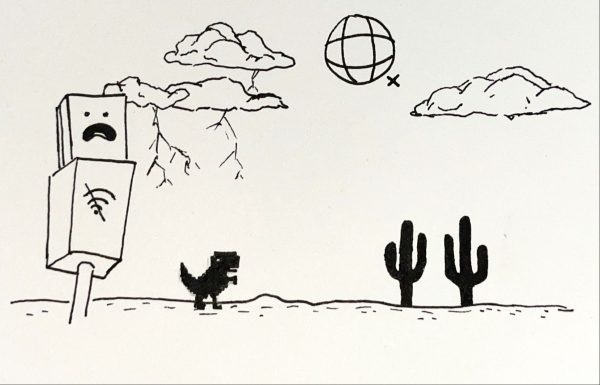Suggestions offer help to avoid car repair legal hassles
November 29, 1988
Experiencing a few extra “minor” problems with your vehicle lately? For example, does Ole Beater start only on calendar days that are prime numbers? Are you starting to keep track of miles per quart rather than miles per gallon? Do friends suggest you could improve your pick-up by hoisting a jib on you hood? If so, it may be time to bring trusty rusty into a local auto surgeon for a needed fix-up. Here are a few suggestions to help you avoid legal hassles when you get your car repaired.
I. Where to go: The first and perhaps most important decision to be made is where to go to get your car repaired. Circumstances may limit or even dictate your choice of repairman when your car is under a dealer’s warranty, or you’ve broken down on the highway. Ideally, you should get several estimates before having the work done. Compare prices and diagnoses that mechanics give you.
There is no Better Business Bureau in DeKalb; elsewhere, you can consult the BBB about the reputation of the shop you are thinking of doing business with. Word of mouth is ordinarily a good source of information, ask your landlord, a professor, or someone who has lived in town for a substantial period of time whom they would recommend.
II. The contract for repairs: When you authorize a mechanic to replace your clutch, perform a tune-up, fix a short in your electric system, etc., you are entering into a contract (usally oral) which is enforceable against both parties. Under the law, the mechanic is required to stand behind his work, that is, perform the work for the price agreed on and you in turn, must pay for the work performed. If the mechanic makes repairs beyond those authorized, he cannot legally charge you for them. If he has installed new parts in the process, he must replace the parts with your old parts, without cost. You are also required to give the mechanic a reasonable opportunity to correct any failure on his part to perform the work correctly.
III. Dealing with the mechanic: Clear communication with your mechanic is crucial. Obviously, a mechanic’s time is money, so you can’t expect a formal course in automotive engineering when you bring your car into the mechanic’s shop. Nevertheless, it is in your mutual interest for both parties to discuss the problem fully.
Give the mechanic all relevant information concerning the symptoms your car has been exhibiting, prior repairs, etc. You will want a written estimate which is the mechanic’s professional opinion concerning the nature of the problem and the extent and costs of repairs required. Sometimes the mechanic will be unable to give you a firm diagnosis without actually beginning work on the car. In this case, you need to be particulary careful to ensure that both parties understand and agree on what the mechanic is authorized to do and what he is not authorized to do. A written statement to this effect is a good idea.
Realize that it is not necessarily in your best interest to deprive the mechanic of all discretion in fixing the car, since in fixing only what you have explicitly authorized, he might be prevented doing other repairs which may currently or soon be necessary and which might cost you substantially more money if done later. One solution is to instruct the mechanic to call you after he has made his diagnosis and prior to doing any repairs so you can advise him whether to proceed.
IV. Disputes: Since you often don’t know when you pick up the car whether the problem is going to recur, it is very important to keep a copy of all bills, estimates, statements, part warranties, etc., relating to the repair work. Frequently you may have to go back to the shop for additional adjustments, etc. As stated, the mechanic has a reasonable opportunity to correct work which he has performed improperly. What is reasonable depends on the circumstances.
With mutual goodwill many problems can be resolved. As long as you are working with the mechanic it pays to remain calm and businesslike in your demeanor, so long as you don’t convey the impression that you will not stand up for your rights. If the dispute is not resolved, realize that the mechanic can keep your car until you pay him for his services.
If things deteriorate to this extent, be sure to pay the bill “under protest”, designating on your check or on the receipt that this is the condition of your payment. See an attorney promptly.
V. Repairs and insurance: Repairs costs sometimes are covered under auto insurance policies when the damage is a result of a traffic accident. Under Illinois law, the other driver and his insurance carrier are not required to pay for repairs which exceed the value of your car. Furthermore, under recent law, when such a “total” loss occurs, the insurance company is required to take possession of your car and surrender it for juck upon payment to you. If the value of your car exceeds the average value established for cars of like year and model (average value being based on presumed condition, mileage, accessories, etc.) you can present evidence of the car’s exceptional condition to the insurance company and the company must adjust its estimate. Again, if you encounter problems, consult an attorney.
Students’ Legal Assistance
Don Henderson
Lynn Richards












